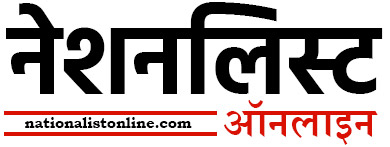SHREYA KEDIA
The term, non-governmental organisation (NGO), gives an expression of voluntarism. That’s right, an NGO is referred to a body that is neither a part of a Government nor is a conventional business organisation. It is much like a company where charitable people come together to promote ideas, but they do not function for profit. NGOs have an agenda to work in the larger interest of the nation; to engage in acts of humanitarian and social work; to promote education; human rights; health care and economic development.
NGOs do receive funding, both domestic and foreign, and there is nothing wrong with that unless it is unaccounted for. However, contrary to its charitable purpose, there exist many bogus NGOs in the country, who, under the grab of social work, have been misusing funds and have been flourishing to promote the interest of their funders (which includes influential people from politics and bureaucracy and those outside the country) by co-existing as a political body and challenging the developmental agenda of the Government. Many NGOs are, in fact, run in name of family members — the purpose behind which is to divert foreign funds of individuals. Perhaps, such NGOs have taken the onus onto themselves to argue issues of governance and democracy. Many of them are not even registered under the Societies Registration Act, 1860.
The lack of sufficient laws to monitor the activities and financial dealings had given such NGOs a free run. But, perhaps, it’s now time to crack down on them. The recent Supreme Court order, asking the Government to audit more than 30 lakh NGOs in the country, will set in motion the process the present Government’s efforts to clamp down on them. The apex court’s order will give more teeth to the Government as a Bench said that the Government must move beyond the ambit of “mere blacklisting” these organisations and asked it to initiate civil and criminal action against such corrupt NGOs which misappropriate public funds.

Ever since the NDA Government came to power, it had been demanding accountability from such organisations on the funds received by them. Foreign funding of NGOs has particularly been an area of concern for the Government. In 2014, soon after coming to power, subsequent to a Intelligence Bureau report that indicated the misuse of Indian NGO’s for anti-national agenda by foreign-contributors, the Union Government had taken a rightful approach to monitor the funding of NGOs. The report stated that India’s gross domestic product had adversely been affected by about two per cent to three per cent through such foreign funding to NGOs. Following Government’s clamp down, Ford Foundation, which is an America-based global charity body, froze about four million dollar funding to Indian NGOs.
Mid-2015, the Government cancelled registrations of more than 10,117 NGOs across the country. As per an Indian Express report, in a bid to strengthen its scrutiny of financial transactions to these NGOs, the Government had even proposed a number of amendments to the Foreign Contribution Regulation Act (FCRA). The new rules proposed that any foreigner, who has links with an NGO in this country, will have to furnish his/her details with the Foreigners Regional Registration Office if he is visiting India. The visitor was also required to spell out the purpose and the dates of the visits. Quiet on expected lines, the Government received criticism for this high-handedness. Many NGOs, who were opposed to the Government’s move to cancel licenses, branded it as “draconian”. There were protests, with activists accusing the Government of stifling their right to dissent in the world’s largest democracy.
Prominent NGOs whose FCRA registrations were cancelled were Citizens for Justice and Peace, Sabrang Trust, both owned by activist Teesta Setalvad and her husband Javed Anand; and Greenpeace.
Teesta Setalvad’s NGO, Sabrang, which was registered as an educational and social trust, was not eligible to accept foreign funds as per FCRA rules. Yet, it had been receiving funds and using it “frequently” for “personal expenses”. The matter was taken up by the Central Bureau of Investigation, which filed a chargesheet earlier this month.
Likewise, many NGOs had come under scanner for fuelling protests against the Kudankulam nuclear project in Tamil Nadu. The accounts such NGOs were put in the watch list in connection with allegations of diversion of foreign funds. Subsequently, licences of many NGOs were canceled for mobilising anti-nuclear protests to create stir among the locals.
Instead of using NGOs as a tool to promote interests, bureaucrats and institutions must work hand-in-hand with the Government to protect the civil society. The apex court has given a tall order that has set the stage for regulating the unfairly overregulated unscrupulous, crooked NGOs in the country. The Union Government must cash-in on the situation.
(The writer is a practising journalist)
